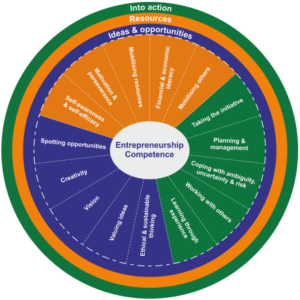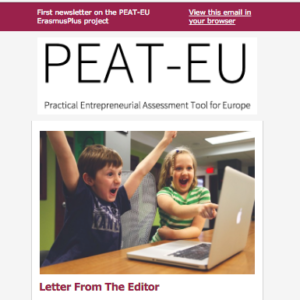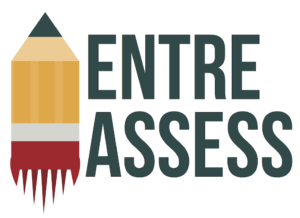EntreComp: From a reference framework to educational practice in entrepreneurial learning
 Europe needs its citizens to be entrepreneurial in all walks of life, to be able to cope with the changes that the XXI century is bringing about. Helping citizens grow their entrepreneurship competence is among the priorities of the European Commission in the area of skills development. The Entrepreneurship Competence framework (EntreComp) is one of the tangible outputs of the effort the Commission is devoting in this area. Developed by the JRC on behalf of DG Employment, Skills, Social affairs and Inclusion, the framework defines, describes and clarifies what the constituting elements of entrepreneurship as a competence are, as DigComp does for digital competence.
Europe needs its citizens to be entrepreneurial in all walks of life, to be able to cope with the changes that the XXI century is bringing about. Helping citizens grow their entrepreneurship competence is among the priorities of the European Commission in the area of skills development. The Entrepreneurship Competence framework (EntreComp) is one of the tangible outputs of the effort the Commission is devoting in this area. Developed by the JRC on behalf of DG Employment, Skills, Social affairs and Inclusion, the framework defines, describes and clarifies what the constituting elements of entrepreneurship as a competence are, as DigComp does for digital competence.
EntreComp adopts a broad definition of entrepreneurship, as the capacity to act upon opportunities and ideas and transform them into value for others, value that can be financial, cultural, or social. The framework breaks down this definition into 3 competence areas (Ideas and opportunities, Resources, Into Action), each being made up by 5 competences. An overview table shows at a glance how each competence develops at foundation, intermediate and advanced level. The full framework further describes a progression model with 8 levels of proficiency and establishes 442 reference learning outcomes. These state what the learners should be able to do per each competence depending on how proficient they are expected to be.
EntreComp has been designed as a reference framework – it is neither a curriculum, nor a programme and therefore it cannot be directly applied into educational practices. Public authorities, third sector organisations and private actors in Europe seeking to improve their guidance, education, training and mentoring services for young people and job seekers, to further an entrepreneurial mind-set among citizens can freely use it as reference to tailor their interventions to specific needs. Learning activities have to be designed to embed the 15 EntreComp competences, and if these need to be certified, assessment methods have to be selected.
Assessing somebody’s capacity to act upon opportunities and ideas and transform them into value for others is indeed a burning challenge. The JRC is working to design self-assessment tools for youngsters to reflect on their own entrepreneurial competence. Also, under the Erasmus+ programme, the Commission is funding an international cooperation action (this PEAT-EU project) to make advancements in assessing entrepreneurial learning. PEAT-EU brings together a pool of partners with extensive experience in entrepreneurship education and will work for two years to define what strategies, methods and tools can be used to assess learners’ progression in the development of entrepreneurship as a competence. PEAT-EU findings will help define how educators can select the most appropriate assessment strategy to cover the three competences areas described in the EntreComp, in primary, secondary and VET education. On this basis, guidelines can be developed on how to assess entrepreneurship as a competence. These in turn will be a driver for making entrepreneurial learning a reality in Education and Training systems across Europe.
Margherita Bacigalupo, Research Fellow at the Joint Research Centre of the European Commission

